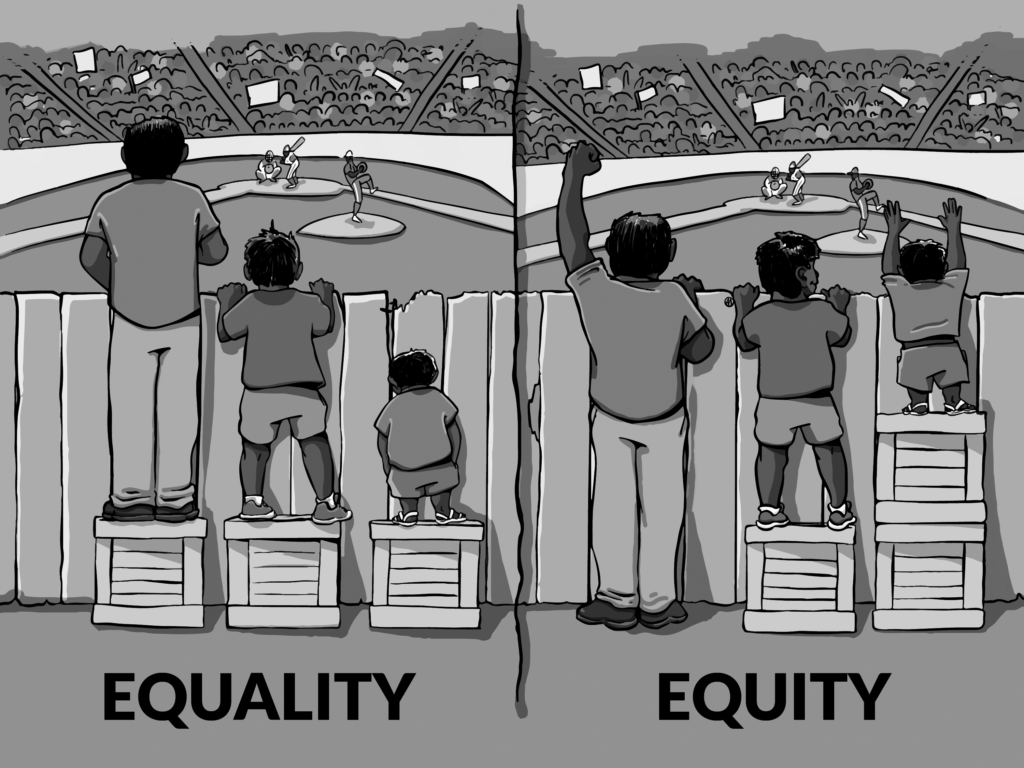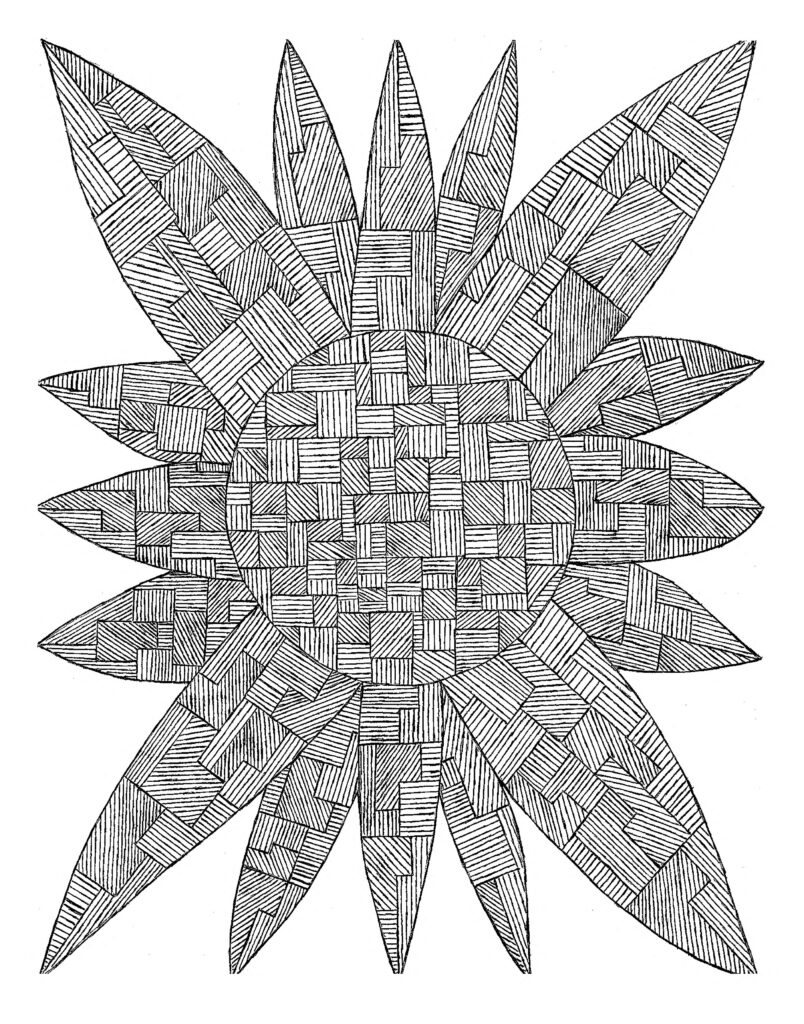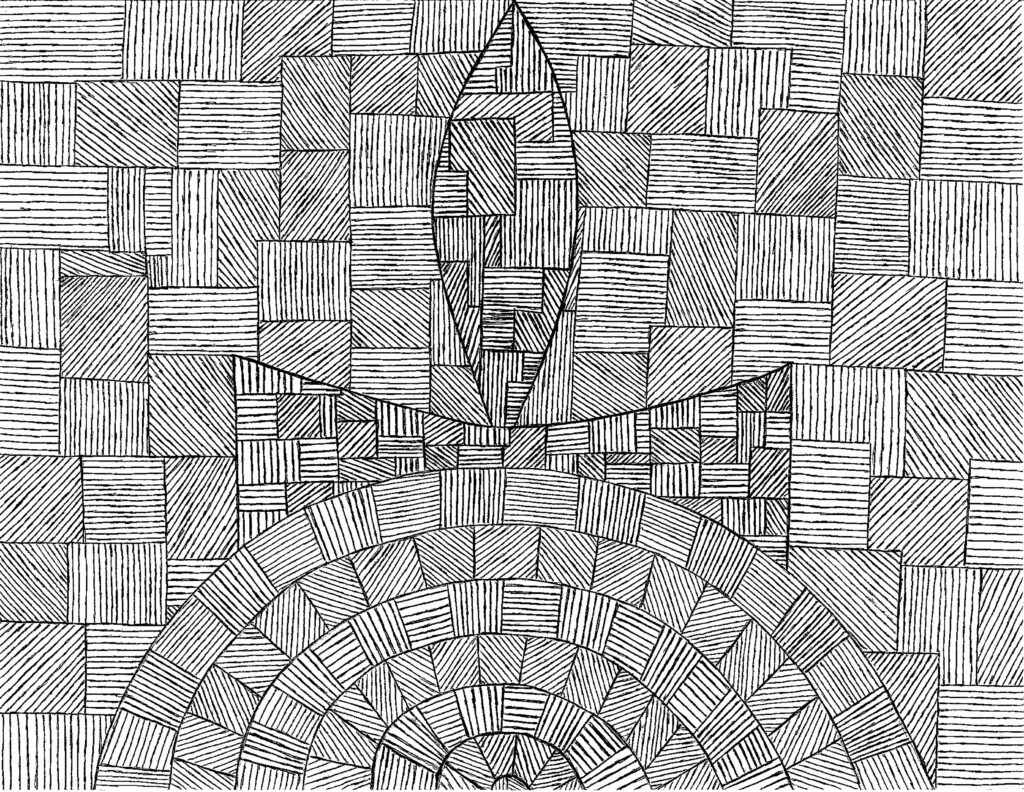
Interaction Institute for Social Change | Artist: Angus Maguire.
Perhaps you have seen the widespread cartoon image that illustrates the difference between “equality” and “equity” [above]. First drawn in 2012 by Dr. Craig Froehle, it shows two panels. In each, three people of varying heights are trying to watch a baseball game over a fence, and they have three crates to stand on. In the scenario labeled “equality,” everyone gets one crate, which allows the tallest person to tower over the fence, but the smallest person still can’t see the game. In the scenario labeled “equity,” the crates are distributed so that everyone can see over the fence.
I’ve been thinking a lot about this cartoon as Unitarian Universalists discuss naming equity as one of the core values of our faith. Specifically, I’ve been thinking about why there is a wooden fence in the first place, and about all of the people in the stands whose access to the game doesn’t depend on the distribution of crates.
If someone were to attend the game in a wheelchair, they’d need more than crates to see over the fence. They’d need an expensive ticket, and a ballpark policy that carves out appropriate and desirable places for wheelchairs to be. (It is purely coincidental but illustrative that this week, a friend who uses a wheelchair and loves baseball took to Facebook to decry the ways in which several major league teams make it harder for him to attend games by putting additional steps in place if one wants to buy a wheelchair-accessible seat.)
It seems to me that true equity is that everyone has access to the game in a way that fits their bodies and brains and not their wallets or the willingness of someone to give them a temporary boost.
It wasn’t until I decided to write about this cartoon, though, that I learned that its original creator researches inequities in healthcare. This makes the difference between getting into the ballpark and trying to see over the fence even more stark. For too many people, inequity leads to death.
I have hope that our Unitarian Universalist embrace of equity will be deeper and more meaningful than a cartoon. Part of the proposed language for what would be our core values reads that “we covenant to use our time, wisdom, attention, and money to build and sustain fully accessible and inclusive communities.”
If we are really serious about equity, then, we will work to make our communities—inside and outside of our congregations—fully accessible and inclusive.
This means accessible and inclusive to all bodies. This means accessible and inclusive to different ways that brains work. This means accessible and inclusive to people with different financial means. That means accessible and inclusive to people with histories of trauma and also those who are imprisoned.
It also means that Unitarian Universalists are called to understand ourselves as part of accessible and inclusive communities, so that when we build structures that allow everyone to be part of things, they don’t come across as unfair or unequal.
Have you ever complained that someone else got a crate to see over the fence, even if you didn’t need one? Sadly, over my years as a minister I’ve fielded way too many similar complaints.
Instead, let us tear down that fence and let everyone into the game. Let’s create space where we can all have the place we need to participate, and where we don’t resent the full participation of others.

